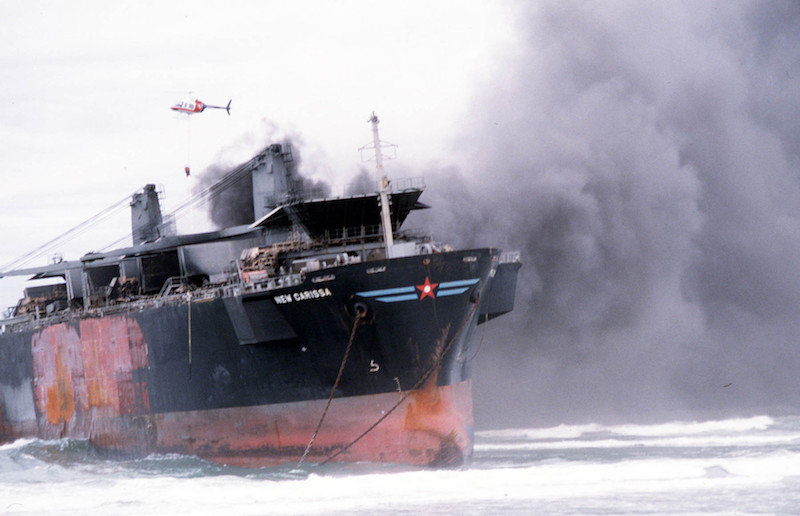In the maritime industry, the words “oil pollution” often brings to mind high-profile incidents such as the groundings of New Carissa in Oregon or Selendang Ayu in the Aleutian Islands.
But there are many oil discharges on the high seas that go largely unnoticed. While navigational error or equipment failure are often at the heart of unintentional spills that make the evening news, the more obscure discharges tend to be deliberate in nature.
These intentional incidents involve falsification of oil record books, insertion of “magic pipes” to bypass oily water separation equipment, or simply waiting until darkness to jettison oily rags over the side in plastic bags. Drones, specialized cameras, and night vision instruments have strengthened the high-tech arsenal for investigating such environmental crimes.
But despite the availability of such sophisticated tools, a recent prosecution for shipboard pollution involved evidence from a relatively low-tech source, namely information from a crewmember.
On May 10, the U.S. Department of Justice announced the conviction and sentencing of shipping company Nitta Kisen Kaisha Ltd. for obstruction of justice and falsification of an oil record book to cover up intentional oil pollution from one of its vessels, the Atlantic Oasis.
The company was fined $1 million and placed on probation for three years. It also had to implement a court-approved environmental compliance plan.
The ship’s chief engineer was placed on probation for one year and ordered to pay a fine of $5,500. The low-tech evidence that led to the convictions was from a junior member of the engineering department who directed investigators to the culprit hoses used to discharge oily waste. During the investigation, the chief engineer originally told authorities there was no sounding log for engine room storage tanks, which turned out not to be the case.
A million dollars may seem like a hefty fine, but in 2016 Princess Cruise Lines plead guilty to deliberate pollution of the seas and intentional acts to cover it up. Princess was fined $40 million, which set a record for the largest criminal penalty involving deliberate vessel pollution.




